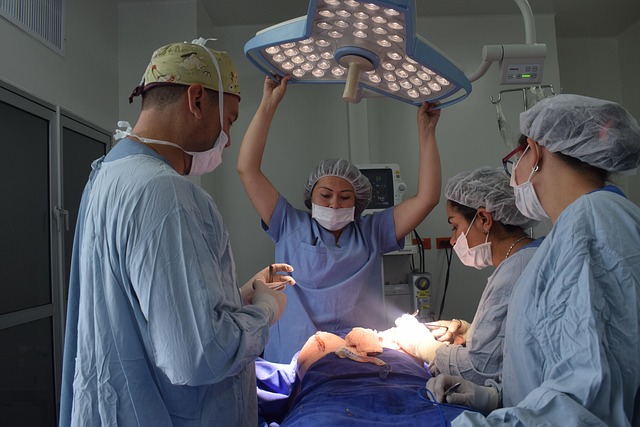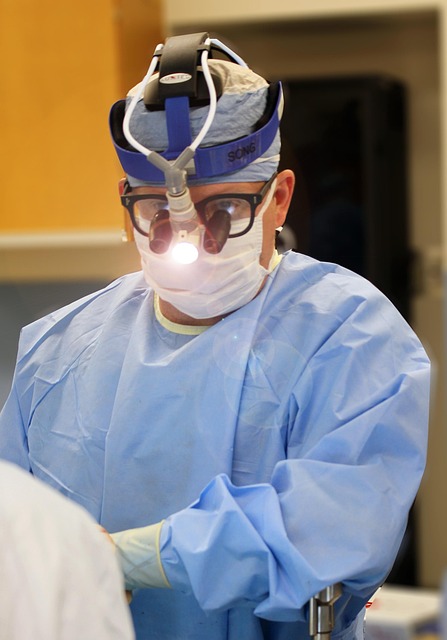In competitive plastic surgery, patient retention is key to success. Building trust through personalized care, effective communication (including digital engagement), community involvement, and addressing post-op concerns are vital strategies. Surgeons who understand individual patient needs, provide exceptional follow-up support, and leverage storytelling techniques in their marketing campaigns create strong relationships, leading to higher satisfaction rates, loyalty, and positive word-of-mouth referrals—crucial for practice growth in a crowded market.
In the competitive landscape of plastic surgery, patient retention is a game-changer. This article delves into the strategies that foster long-term success by enhancing patient satisfaction and experience. From building trust through personalized care and effective communication to leveraging technology for better follow-ups and fostering community engagement, each section explores vital tactics in the realm of plastic surgery marketing. Understanding these key elements ensures a thriving practice and happy, loyal patients.
Understanding Patient Retention: The Key to Long-Term Success in Plastic Surgery

In the competitive landscape of plastic surgery, patient retention is a critical component of long-term success. It goes beyond simply attracting new clients; it involves fostering strong relationships with existing patients to encourage repeat business and referrals. Effective plastic surgery marketing strategies recognize this and focus on building trust, enhancing communication, and delivering exceptional patient experiences. By understanding the unique needs and expectations of their clientele, surgeons can create a loyal patient base that appreciates personalized care and high-quality outcomes.
A successful plastic surgery practice realizes that each patient has distinct goals and concerns. Tailoring services to these individual requirements, providing transparent communication channels, and ensuring aftercare support are essential tactics in the plastic surgery marketing arsenal. These efforts not only boost patient satisfaction but also lead to higher retention rates, making them vital for sustaining a thriving practice over time.
Building Trust and Rapport: Creating a Supportive Environment for Patients

Building trust and rapport is a cornerstone of patient retention in plastic surgery practices. Surgeons who prioritize fostering a supportive environment create a strong foundation for long-term relationships with their patients. This involves active listening, showing empathy, and being transparent about procedures, risks, and recovery processes. A warm, welcoming atmosphere, combined with personalized care, can make patients feel valued and understood, encouraging them to return for follow-up appointments and future treatments.
Effective communication is key in this process. Surgeons should be open to answering patient questions thoroughly and using simple, understandable language during consultations. Incorporating patient education materials, such as brochures or videos, tailored to different procedures can also enhance understanding and build trust through knowledge sharing, an essential aspect of plastic surgery marketing.
Personalized Care: Tailoring Treatment Plans to Meet Individual Needs

In the realm of plastic surgery, patient retention is a key metric for any successful practice. A critical strategy to enhance retention and foster strong relationships with patients is providing personalized care. Plastic surgeons who tailor treatment plans to meet individual needs not only improve patient satisfaction but also encourage long-term loyalty. This involves understanding each patient’s unique goals, concerns, and lifestyle to offer customized solutions that align perfectly with their expectations.
Personalized care goes beyond the surgical procedure itself. It encompasses pre-operative counseling, where surgeons educate patients about what to expect, dispel fears, and answer questions. Post-op care is also crucial, with regular check-ins, detailed instructions for recovery, and access to support staff. By implementing these strategies, plastic surgeons can elevate their practice’s reputation in the competitive market of plastic surgery marketing, ensuring patients feel valued and understood throughout their journey.
Effective Communication: Strategies for Engaging and Educating Patients

Effective communication is a cornerstone of patient retention in plastic surgery, acting as a powerful tool to foster trust and engagement. Surgeons should adopt clear, consistent, and empathetic communication strategies to educate patients about procedures, expectations, and post-operative care. This includes providing detailed explanations tailored to each patient’s needs, addressing concerns openly, and utilizing visual aids or technology for better comprehension. Active listening is equally vital; surgeons should encourage patients to voice their questions and fears, ensuring a collaborative environment.
Integrating these communication techniques into plastic surgery marketing strategies can significantly enhance patient satisfaction and loyalty. By demonstrating a commitment to transparency and education, practices attract and retain clients seeking expert care. Effective communication builds rapport, encourages open dialogue, and positions surgeons as trusted advisors, ultimately contributing to higher patient retention rates and positive word-of-mouth referrals in the competitive aesthetic market.
Leveraging Technology: Digital Tools for Enhancing Patient Experience and Follow-up

In today’s digital era, leveraging technology is a powerful strategy for plastic surgeons to enhance patient experience and improve retention. Digital tools play a crucial role in simplifying post-operative care, allowing surgeons to provide more personalized and efficient services. Through mobile apps or secure online portals, patients can access important information about their recovery process, receive reminders for medication or follow-up appointments, and even submit photos for progress tracking. This level of digital engagement not only makes patients feel valued but also enables surgeons to proactively monitor each individual’s healing journey.
Effective plastic surgery marketing involves creating a seamless digital experience that encourages patient trust and loyalty. By integrating user-friendly technology into their practices, surgeons can streamline communication, offer remote consultations, and provide educational resources tailored to each patient’s needs. Such innovative approaches contribute to building stronger relationships with patients, increasing satisfaction levels, and ultimately fostering higher retention rates within the competitive plastic surgery market.
Fostering Community Engagement: Building a Loyal Patient Network

Fostering community engagement is a powerful strategy for plastic surgeons to build a loyal patient network, an essential aspect of successful plastic surgery marketing. By actively participating in local events, charity work, and community initiatives, surgeons can establish themselves as trusted figures within their communities. This personal connection forms the foundation for long-term patient loyalty and positive word-of-mouth recommendations.
Surgeons can engage with potential and existing patients by offering educational workshops or seminars on relevant health topics, providing free consultations at local events, or partnering with community organizations to raise awareness about plastic surgery options. Such interactions not only showcase expertise but also create a friendly, accessible image that encourages patients to choose local surgeons for their procedures.
Addressing Post-Operative Concerns: Ensuring Satisfaction and Minimizing Complications

Addressing post-operative concerns is a key strategy in patient retention for plastic surgeons, as it ensures satisfaction and minimizes complications, both vital aspects of effective plastic surgery marketing. Surgeons should proactively communicate clear expectations to patients before and after procedures, addressing potential risks, recovery timelines, and post-op care instructions. This not only enhances trust but also equips patients with the knowledge to manage their healing process effectively.
Regular follow-up appointments and accessible communication channels allow surgeons to monitor patient progress, address concerns promptly, and offer personalized advice. By demonstrating a commitment to patient well-being throughout the entire journey, from consultation to recovery, surgeons foster strong relationships that encourage loyalty and positive word-of-mouth recommendations, strengthening their plastic surgery marketing efforts.
Continuous Improvement: Adapting Marketing and Retention Strategies Over Time

In the dynamic landscape of plastic surgery, continuous improvement is not just a mantra but a necessity. As trends evolve and patient preferences shift, so must marketing and retention strategies. Plastic surgeons who excel in this area stay ahead of the curve by adapting their approaches regularly. This involves keeping up with the latest advancements in the field and understanding what draws patients to specific procedures. By integrating these insights into their marketing efforts, surgeons can create tailored campaigns that resonate deeply with their target audience.
Effective plastic surgery marketing today goes beyond showcasing before-and-after results. It tells compelling stories, engages through social media, and leverages patient testimonials to build trust. Surgeons who invest in refining their marketing strategies over time not only attract new clients but also foster stronger connections with existing ones. This long-term focus on continuous improvement ensures that the practice remains relevant, appealing, and a go-to destination for patients seeking transformative procedures.
